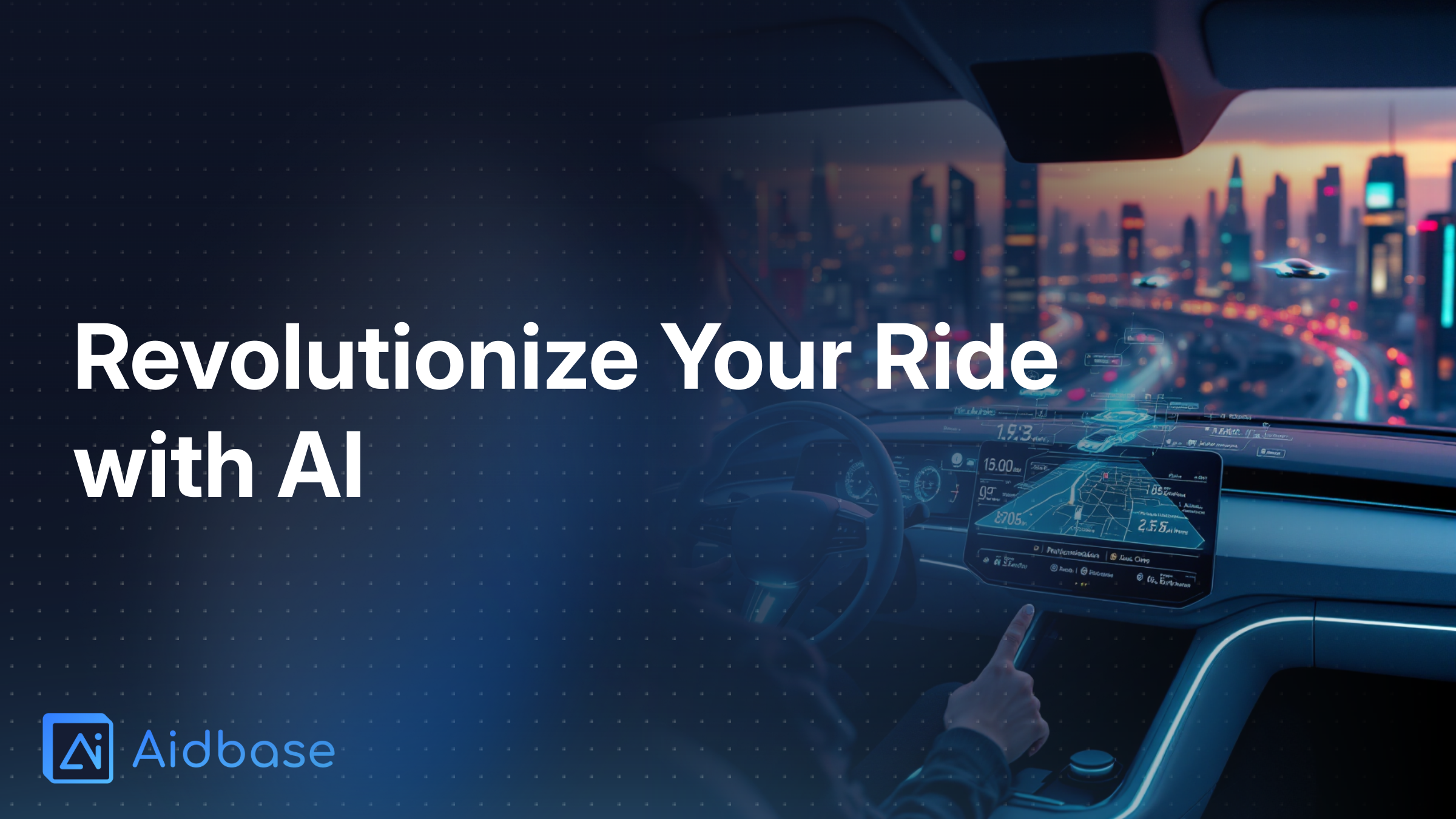Artificial intelligence is revolutionizing the automotive industry by enhan...

Artificial intelligence is transforming the automotive sector by making customer support more proactive, personalized, and efficient. The shift is remarkable—from technology that helps drivers navigate complex systems in real time to predictive systems that anticipate maintenance issues before they become critical. Let’s explore how these innovations are reshaping the experience for both drivers and passengers.
The automotive industry is undergoing a revolutionary change as AI-powered customer support becomes integral to modern vehicles. Traditionally, customer support involved reactive measures—drivers would wait for mechanical issues to manifest or for assistance to be available after facing unexpected challenges. Now, with AI’s integration, support systems are shifting to a more proactive and personalized approach that ensures satisfaction and enhances overall vehicle performance. By continuously analyzing data from vehicles, AI enables early detection of potential issues, customizes the driving experience, and streamlines interactions. This holistic approach is a win for safety, performance, and customer satisfaction.
One of the most significant innovations is the integration of AI-driven virtual assistants within vehicles. Automakers are leveraging advanced language models and cloud computing to deliver real-time support to drivers and passengers. For instance, Google has joined hands with Volkswagen to develop an AI assistant embedded in a smartphone app. This assistant allows users to ask vehicle-related questions and learn more about their dashboard features just by pointing their phone at them. For more on this collaboration, you can read the detailed report on Reuters.
In another breakthrough, partnerships like the one between Qualcomm and Alphabet’s Google are now allowing automakers to develop custom AI voice assistants independent of the driver's phone. This innovation not only boosts in-car interaction but also ensures that vehicle support systems are deeply integrated with the car’s operational infrastructure. By creating these unique and highly tailored assistants, automakers are setting new standards for user-vehicle communication, fostering a more seamless driving experience.
AI has also revolutionized vehicle maintenance through predictive analytics. This technology forecasts potential issues by continuously monitoring the performance of various vehicle systems. The benefits of predictive maintenance include:
Companies such as Tesla utilize AI to monitor vehicle systems in real time. This proactive approach not only bolsters the reliability of vehicles but also significantly enhances customer satisfaction by preventing unexpected breakdowns. For a deeper dive into how predictive maintenance is reshaping automotive support, check out this XenonStack article.
Modern drivers expect a level of personalization that goes beyond the traditional driving experience. AI empowers automakers to deliver tailored experiences based on individual preferences and driving habits. Through constant interaction and data collection, AI systems can suggest route optimizations, adjust in-car settings, and even predict passenger comfort needs based on previous journeys. This creates a unique bonding experience between technology and users, ensuring that every trip is as comfortable and efficient as possible.
In addition, tools like Aidbase are emerging as supportive AI-driven platforms that assist in streamlining customer interactions. Whether it's resolving minor queries or offering timely suggestions during a drive, the emphasis on personalized support is setting new benchmarks. These advancements are not only delighting passengers with bespoke features but are also setting up a new standard for integration between vehicle technology and end-user experiences.
Several high-profile case studies illustrate the transformative power of AI in automotive customer support. The collaboration between Google and Volkswagen is a prime example. By integrating the AI assistant within a smartphone app, this initiative has set a precedent in utilizing computer vision and natural language processing to enhance the driving experience.
Another notable case is that of Lyft, which teamed up with AI firms like Anthropic to optimize its customer care operations. By integrating advanced AI tools, Lyft managed to reduce its average customer service resolution time by a staggering 87%, handling thousands of requests daily. This case study not only exemplifies how AI can streamline customer support but also highlights its scalability and efficiency across diverse customer service channels. Additional details on these implementations can be read on Reuters.
While AI presents transformative benefits, its integration into the automotive industry is not without challenges. Key considerations include:
Despite these hurdles, the benefits far outweigh the risks as the industry continues to adapt. By engaging in continuous dialogue with regulatory bodies and investing in secure technology, the automotive sector can overcome these obstacles and pave the way for holistic, future-ready systems.
The horizon for AI in automotive customer support is brimming with promise. Future trends include even more advanced integration of AI systems, greater collaboration between tech giants and automakers, and further personalization of services. Anticipated developments include:
Furthermore, partnerships like those seen with Aidbase reinforce the potential for continuous innovation, ensuring that the evolution of AI in the automotive world remains on a forward trajectory.
The AI revolution in automotive customer support is well underway, enabling a smoother, safer, and more personalized driving experience. From virtual assistants that provide real-time guidance to predictive maintenance systems that safeguard vehicle performance, AI is not just a technological upgrade—it’s a fundamental shift in how vehicles interact with their users. The journey may come with its challenges, but the promise of increased efficiency, heightened safety, and enriched customer service makes the future of AI in the automotive sector incredibly exciting. As automakers and tech companies continue to innovate, embracing these advancements will be key to unlocking a more dynamic and intelligent driving experience for everyone.